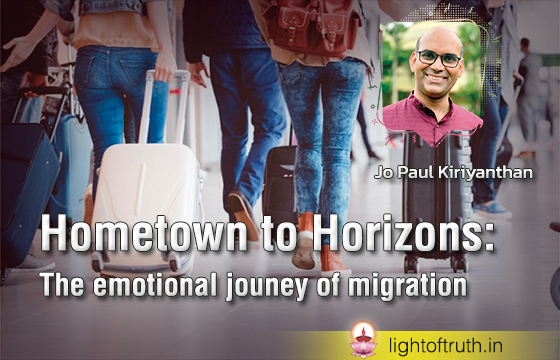Migration has been an integral part of Kerala’s culture for a long time, but for young people today, the motives extend far beyond economic security. For many, migration is an escape to freedom, enjoyment, and self-expression. Freedom from parental control, seeking independence, and being exposed to the vibrant Instagram tales of friends elsewhere tend to drive young people to migrate. The attraction lies not only in jobs or education but also in the promise of a lifestyle that feels more exciting and less restricted.
Social comparison heightens this desire. A student remaining behind in Kerala might feel lagging behind when his friends share glamorous images of Europe, Canada, or the Gulf. Parents, too, perpetuate the notion that travelling abroad ensures security and prestige and transfer the same inconvenience to their children. For some, migration is not just an economic choice—rather, it is a quest to build identity, seek notice, and establish one’s value in a larger world.
For many, migration is an escape to freedom, enjoyment, and self-expression
However, difficulties they face are deep. The excitement of landing in a new nation often crashes into the isolation of cultural displacement, language difficulties, and the lack of customary family support. Homesickness, particularly during festivals and family celebrations, is especially heavy. Most young people also struggle with the pressure of coping with financial needs, demanding work, or rigorous study schedules, which can cause anxiety and burnout. Even slight variations—food, climate, or social morals—can reinforce feelings of disconnection.
With the passage of time, most young migrants carry a double sense of belonging. Elsewhere, they are outsiders; in Kerala, they return as strangers to a world that has gone on without them. This felt tension is a reflection of an underlying conflict between the promise of transformation and the price of surrendering one’s roots.
The psychology of migration for Kerala’s youth is then not only about pursuing opportunities. It is about navigating dreams of freedom and recognition with the sacrifices and internal battles migration inevitably brings. For most, it is still a journey of desire and trial of resilience.


